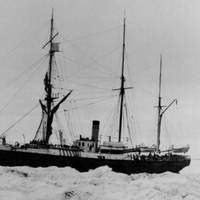Wreck of USRC Bear Found off Nova Scotia

The decades long mystery of a missing U.S. Coast Guard Ship has finally been solved. U.S. Revenue Cutter (USRC) Bear, lost at sea in 1963, has been found on the seafloor about 90 miles south of Cape Sable, Nova Scotia, NOAA Rear Adm. Nancy Hann announced Thursday.Widely considered one of the most historically significant ships in American history, Bear was purchased by the U.S. government and first put into service by the U.S. Navy as part of the rescue fleet for the Greely Expedition to the Arctic in 1884, attaining legendary status for the rescue of the expedition's few survivors.
TSB Again Finds No Risk Management Caused Death
In its latest investigation report on Silver Angel (M11M0017), the Transportation Safety Board of Canada (TSB) has identified, once again, that the absence of a practical and active risk management system onboard a fishing vessel continues to result in loss of life. On the morning of 3 May 2011, at 5.5 nautical miles southwest of Cape Sable Island, Nova Scotia, a crew member from the small fishing vessel Silver Angel fell overboard while retrieving paravane stabilizers. The captain, the only other crew member onboard, made several unsuccessful attempts to rescue the crew member who was lost at sea. “"Our investigation found that the deckhand was not wearing safety equipment and this significantly reduced his chances of survival and rescue," said Pierre Murray, TSB Regional Manager.
New Cutters for Florida USCG Fleet
The USCG has added two cutters to its fleet based in the Florida Keys, helping to make it easier to patrol 55,000 sq. miles of increasingly busy waters. The two 110-footers, Chincoteague and Key Largo, and their crews were welcomed to port during a Trumbo Point ceremony. Chincoteague, named after an island in Virginia's Outer Banks, was previously stationed in Mobile, Ala. Key Largo comes close to its namesake from Savannah, Ga. Five other 110-foot cutters, two 270-ft. cutters and 10 small patrol boats are already stationed in the Keys. Another 110-footer will join the fleet next summer. From stations in Key West, Marathon and Islamorada, the USCG patrols about 750 miles of coastline and waters roughly bordered by Card Sound, Andros in the Bahamas, Cuba and Cape Sable.





